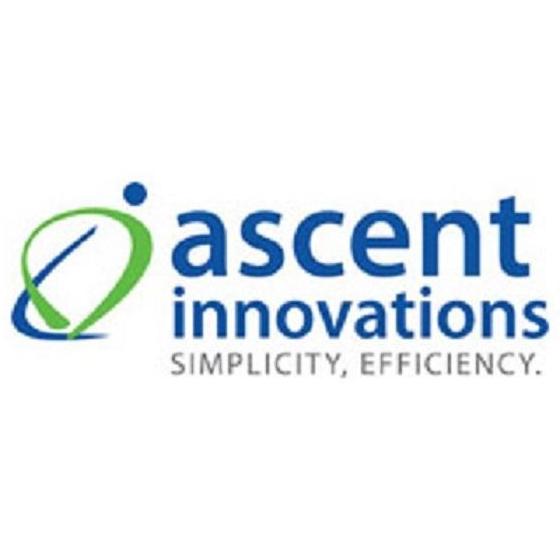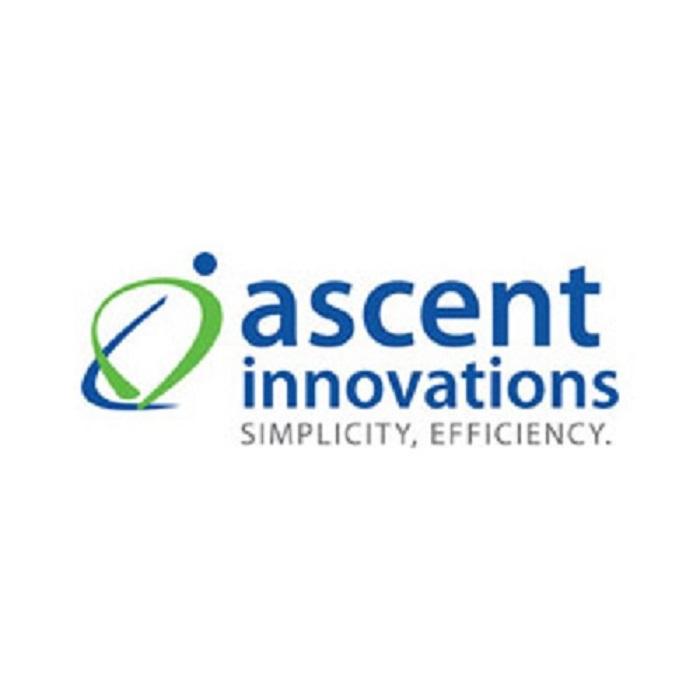www.ascent365.com
CPG, harness the potential with real-time data Streamline operations, respond to trends, and uncover value with Microsoft Cloud & Dynamics 365 Supply Chain Schedule a 45-min Consultation Navigating CPG Industry Challenges with Dynamics 365 Finance & Supply Chain Introduction The consumer packaged goods (CPG) industry is facing a turbulent market as tariffs on imports hover around 25%, driving higher costs for raw materials, packaging, and ingredients. With many essential components sourced internationally—such as spices, fresh produce, supplements, and aluminum for packaging—manufacturers must navigate rising expenses, supply chain disruptions, and shifting consumer demand. These challenges come at a time when consumer behavior is also evolving. Faced with price increases, shoppers are shifting toward private-label brands, bulk purchasing, and cost-saving alternatives, creating new competitive pressures for CPG manufacturers. Meanwhile, retailers are demanding greater flexibility and just-in-time inventory to manage fluctuating costs and shifting demand patterns. To succeed in this environment, CPG manufacturers must strengthen supply chain resilience, optimize production, and control costs while maintaining agility to respond to sudden tariff changes and market fluctuations. Microsoft Dynamics 365 Finance and Supply Chain provides real-time visibility, automated workflows, and AI-driven forecasting, helping companies streamline operations, stabilize pricing, and protect profitability despite economic uncertainty. Optimizing CPG Operations with D365 Supply Chain End-to-end supply chain visibility Production planning and tariff impact mitigation Inventory and demand forecasting Supplier & procurement optimization End-to-End Supply Chain Visibility CPG manufacturers must manage complex supply chains that span multiple suppliers, distribution channels, and retail partners. D365 Supply Chain enables real-time monitoring and control by: Providing full traceability of ingredients, packaging materials, and finished goods to meet compliance standards Automating inventory tracking and replenishment to prevent shortages and optimize stock levels Enhancing supplier collaboration to reduce risks from tariff-driven sourcing challenges Improving logistics visibility to optimize distribution networks and minimize delays By centralizing supply chain data and integrating AI-driven analytics, manufacturers can quickly adjust sourcing, mitigate disruptions, and improve operational efficiency. Production planning and tariff impact mitigation Manufacturing costs are rising due to increased tariffs on imported materials like spices, oils, packaging components, and aluminum. D365 helps optimize production by: Automating recipe and batch management to reduce material waste and improve cost control Optimizing production scheduling to align with changing demand and material availability Enhancing supplier flexibility by integrating alternative sourcing options in procurement workflows Implementing AI-driven forecasting to predict material cost fluctuations and adjust pricing strategies With real-time production insights, manufacturers can adapt quickly to shifting costs, prevent supply chain bottlenecks, and maintain profitability despite tariff volatility. Inventory and demand forecasting Uncertain tariffs mean that costs and availability of raw materials can change overnight. To stay ahead, CPG manufacturers must optimize inventory management and demand planning. D365 enables: AI-powered demand forecasting to align production with shifting consumer demand and supply chain constraints Automated inventory tracking to prevent overstocking or shortages of high-cost materials Real-time cost analysis to adjust procurement and production strategies in response to tariff fluctuations Integration with retail and distributor networks to streamline fulfillment and reduce waste By leveraging predictive analytics and real-time data, manufacturers can proactively manage inventory levels, stabilize costs, and minimize financial risks Supplier & Procurement Optimization CPG manufacturers must diversify their supplier base to mitigate tariff risks and maintain cost efficiency. D365 enhances procurement strategies by: Automating supplier evaluations to identify cost-effective, tariff-free sourcing alternatives Enhancing vendor collaboration portals for seamless order tracking and contract negotiations Optimizing procurement workflows to balance price fluctuations and minimize disruptions Leveraging AI-driven cost modeling to assess tariff impact and adjust supplier strategies in real time With a smarter, more flexible procurement approach, manufacturers can reduce sourcing risks and stabilize production costs despite unpredictable tariffs. End-to-End Supply Chain Visibility CPG manufacturers must manage complex supply chains that span multiple suppliers, distribution channels, and retail partners. D365 Supply Chain enables real-time monitoring and control by: Providing full traceability of ingredients, packaging materials, and finished goods to meet compliance standards Automating inventory tracking and replenishment to prevent shortages and optimize stock levels Enhancing supplier collaboration to reduce risks from tariff-driven sourcing challenges Improving logistics visibility to optimize distribution networks and minimize delays By centralizing supply chain data and integrating AI-driven analytics, manufacturers can quickly adjust sourcing, mitigate disruptions, and improve operational efficiency. Production planning and tariff impact mitigation Manufacturing costs are rising due to increased tariffs on imported materials like spices, oils, packaging components, and aluminum. D365 helps optimize production by: Automating recipe and batch management to reduce material waste and improve cost control Optimizing production scheduling to align with changing demand and material availability Enhancing supplier flexibility by integrating alternative sourcing options in procurement workflows Implementing AI-driven forecasting to predict material cost fluctuations and adjust pricing strategies With real-time production insights, manufacturers can adapt quickly to shifting costs, prevent supply chain bottlenecks, and maintain profitability despite tariff volatility. Inventory and demand forecasting Uncertain tariffs mean that costs and availability of raw materials can change overnight. To stay ahead, CPG manufacturers must optimize inventory management and demand planning. D365 enables: AI-powered demand forecasting to align production with shifting consumer demand and supply chain constraints Automated inventory tracking to prevent overstocking or shortages of high-cost materials Real-time cost analysis to adjust procurement and production strategies in response to tariff fluctuations Integration with retail and distributor networks to streamline fulfillment and reduce waste By leveraging predictive analytics and real-time data, manufacturers can proactively manage inventory levels, stabilize costs, and minimize financial risks Supplier & Procurement Optimization CPG manufacturers must diversify their supplier base to mitigate tariff risks and maintain cost efficiency. D365 enhances procurement strategies by: Automating supplier evaluations to identify cost-effective, tariff-free sourcing alternatives Enhancing vendor collaboration portals for seamless order tracking and contract negotiations Optimizing procurement workflows to balance price fluctuations and minimize disruptions Leveraging AI-driven cost modeling to assess tariff impact and adjust supplier strategies in real time With a smarter, more flexible procurement approach, manufacturers can reduce sourcing risks and stabilize production costs despite unpredictable tariffs. Supporting Financial and Pricing Strategies with D365 Finance Automated financial management and cost control ... Read more






